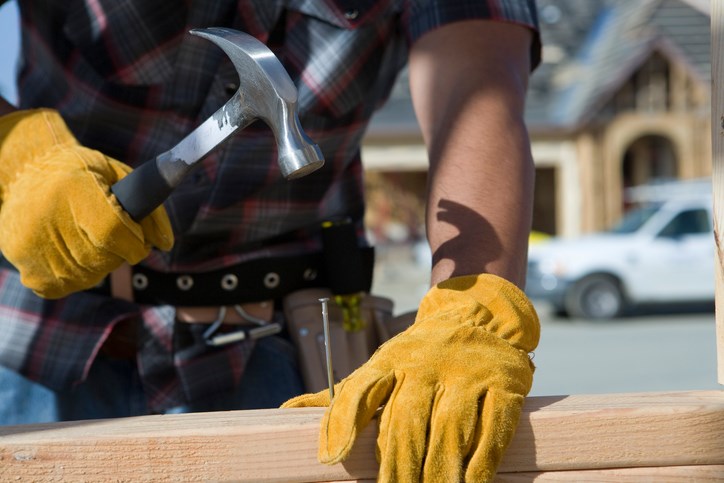In our last Weekly Buzz before the new year, we take a look at some key investment developments, including new information from Statistics Canada on home construction and how to navigate the residential market given the new statistics. One of the biggest real estate deals in the province was also confirmed this week, and Western Investor had the story first when it broke this fall.
Here is Western Investor’s media content roundup of the top stories covering what was new and notable in real estate this week.
BC Raises the Bar Once Again for New Home Construction Investment: StatCan – REW.ca
As reported by Western investor’s sister publication, REW.ca, the latest Statistics Canada numbers showed an increase in new home construction investment in year-over-year comparison, but posted decreases as compared to previous months.
Investment in townhouses and other attached properties in BC totalled $96.9 million in October, down just a smidge at 0.1 per cent compared with September, but 28.5 per cent higher than a year previously.
Only $32.9 million was spent on building new duplex homes in BC in October, a year-over-year rise of 25.7 per cent but a drop of 3.5 per cent from September.
As usual, despite raising the investment bar once again, BC was in second place out of all provinces and territories in terms of total dollar amount in new home construction investment, with Ontario spending $2.1 billion in residential construction. But, also as has been the recent trend, BC’s growth in new home investment was once again much steeper than Ontario’s 13.9 per cent year-over-year increase.
New home construction investment dropped on a year-over-year basis in seven of Canada’s 14 provinces and territories, with annual declines recorded in Newfoundland and Labrador (which are combined), Nova Scotia, New Brunswick, Quebec, Manitoba, Saskatchewan and Alberta.
After also breaking a record in new home building investment in September, breaching the $5 billion mark for the first time, the nation as a whole slipped a little in October, spending $4.9 billion on new housing construction. This was still a year-over-year rise of 4.9 per cent.
[REW.ca]
Residential investment advice: how to survive Vancouver's housing market crash – Western Investor
Although residential investment is up as compared to the previous year, government-imposed taxes and restrictions on purchasing homes has caused the market to stall in recent months, leaving investors at a loss. While investing in most assets classes during this time in the market would be considered a gamble, Western Investor offered some suggestions on the safest places to invest while waiting out the policy fallout.
McNeill notes that the fundamentals of the Metro Vancouver housing market remain rock solid: about 34,000 people are moving into the region each year, the land shortage remains acute and prices have begun to stabilize after surging 35 per cent in the past year.
So what should investors be buying now?
McNeill recommends pre-sale condominium apartments and townhouses that will complete in two to three years, because future strata prices are being forced higher due to soaring land costs. McNeill said there is an investor push to buy into older strata projects because it is now easier for owners to band together and sell the entire building for development.
With the tight rental vacancy rate landlords should have no problem finding tenants. Rents for a two-bedroom apartment in Metro Vancouver are forecast to rise to $1,460 by 2017, with typical condos renting for more.
Others say the best opportunity is in the slumping market for higher-end detached houses.
“It is move-up buyers who can really benefit,” said Adil Dinani of Royal LePage West.
TransLink stays mum on massive Oakridge Transit Centre sale – Western Investor
On Tuesday, Dec. 20, it Translink confirmed the sale of Oakridge Transit Centre, purchased for $440 million by Vancouver developer Intergulf Development Group and China-based Modern Green Development Co. Ltd., operating as Modern Investment Group. Western Investor was first on the story in October. At the time, TransLink wouldn’t divulge details on what would become one of the biggest real estate deals in the province.
The Oakridge Transit Centre land sale ranks in the top five real estate deals in Metro Vancouver this year and is the second-largest sale of public land in the province.
The Oakridge Transit Centre development lands have been approved for a density of approximately 1.26 million square feet of residential and retail, according to a 2015 City of Vancouver planning document. The proposed density is approximately 2.1 FSR (floor space ratio) over the entire site, or 2.5 FSR if a planned 2.3-acre park is not included in the calculation. The focus is on residential.
TransLink considers the Oakridge transit site as surplus land and has already transferred most of the buses and services to its Vancouver Transit Centre in south Vancouver.
There is no confirmation on the timing of development. The remaining transit centre services would have to move and the entire site cleaned up to modern environmental standards at the expense of TransLink. Building permit and development approvals would then need to be finalized with the City of Vancouver.



